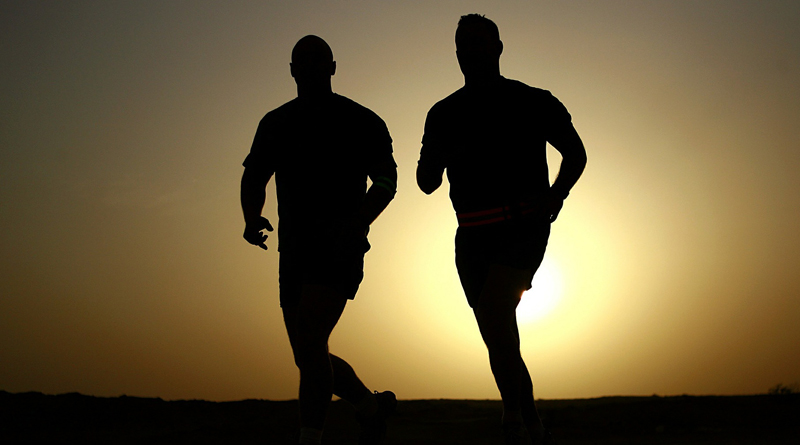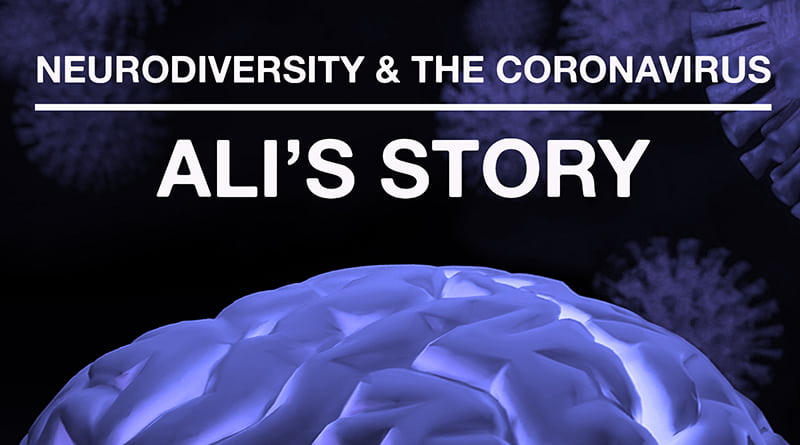
Neurodiversity and Fitness: The Value in Exercise for Different Brains
By Steven Dinnen
Hello Different Brains community! My name is Steven Dinnen, and I am a University of South Florida Exercise Science graduate. I am a personal trainer at Best Day Fitness Studio in St. Petersburg, Florida. I have spent my college career studying and continuously learning about the human body through both my coursework and experiences. I decided to start a blog column for two reasons: First, a close mentor suggested I share my experiences and knowledge of the body and how exercise can affect it. Secondly, I am determined to help people find and use a reliable resource for their fitness needs and questions. I realized that a good website needs to use research-based facts instead of opinions, and that is the type of resource my articles will be for readers.
This blog will include an array of exercises that anyone can do, with modifications to change the difficulty level. This column will focus on the neurodiverse community, and break down perceived obstacles related to exercising. We are going to take what makes us different, and create exercise programs that are just as unique as our brains. I will also cover what the different brain community is doing related to the fitness world. As a reader, you can expect to read blogs about exercise programs that supply you with the health benefits you are looking for. Most of the blogs will be written about functional and practical exercises to make the everyday task become a little easier. Overall, my goal for my readers is to leave each article feeling optimistic and like they can conquer any fitness goal they want.
Exercise can reduce one’s depression, increasing muscle mass in affected areas, and reducing the difficulties of daily task. When we exercise, we release a hormone called Dopamine. This is the hormone that controls how pleasurable we feel about something. Exercising releases and increases dopamine, and that is why we feel so happy and renewed after we exercise. In the end this has been shown to reduce one’s depression because there is a link between depression and dopamine. Of course, this is strictly from an anatomical and physiological standpoint, and not a psychological one.
…many of the symptoms, traits, and issues related to (neurodiverse) conditions can cause people to not reach their recommended amount of exercise. They may not know what to do, and/or don’t have the resources. They lose confidence in themselves and, before you know it, their self-efficacy stops them from exercising.
Secondly, many mental diseases affect the muscles of the body. This can be seen in people with Parkinson’s disease, Traumatic Brain Injuries, and those that have suffered a stroke. Other people with ADHD, autism, and other conditions, their diagnoses may not affect their muscle directly. But, many of the symptoms, traits, and issues related to the conditions can cause people to not reach their recommended amount of exercise. They may not know what to do, and/or don’t have the resources. They lose confidence in themselves and, before you know it, their self-efficacy stops them from exercising.
Regardless of what is stopping them from exercising, the muscle mass of the body then decreases, which only increases the difficulty of everyday movement and tasks. On the other hand, when they start to exercise, they feel better because the dopamine increases, like I mentioned earlier, and the muscles are stimulated. When muscles are stimulated, they begin to grow instead of shrink. This allows people to reduce issues with daily movements, an overall reduction in the exertion related to these movements, increase independence and a healthier lifestyle.
Now to give you some background about myself. Before college, I was one of those people scouring the internet for fitness information. I researched everything and anything I could find about health and fitness. On the other hand, when I began my college career I entered as a mechanical engineer. I spent my first two years of college going through all the courses, trying to be healthy and go to the gym. When my sophomore year came along, I realized that I just didn’t fit. One day talking to my mom about switching majors she brought up something that I guess I always knew but didn’t know what to do with. She said that I always talked about the gym and exercising, and that was what people knew me for. I considered it and found an actual major that was for personal training and so much more. The major was called Exercise Science. This was awesome but it was nowhere near the easy road. I had to catch up in all the required courses in 2 semesters and apply to hopefully be accepted. Mind you, I had just earned my 3rd C and had a GPA that I don’t want to talk about. I decided this is what I must do, and pursued my happiness. As you already know I was accepted into the program and I haven’t looked back since.
I am now a proud blogger of Different Brains, and a Best Day Fitness personal trainer. I hope as I begin my career that I can bring something great to the profession, and, I look forward to sharing fitness information for those of us with different brains!
Steven Dinnen is a University of South Florida graduate, with a Bachelor’s degree in Exercise Science. While earning his degrees he spent continuous hours studying the human body through both course work and practical applications such as exercise labs, personal experience, and an internship. He currently is working as a personal trainer/ exercise scientist at Best Day Fitness Studio in St. Petersburg, Florida.
The combination of his degree plus his experience as a trainer has allowed him to flourish both on a personal and professional level, and learn through experience what amazing things the human body can do. This has been the driving force behind his passion to blog, and share these experiences. He also loves to write about the future of the fitness industry, and anything he thinks the general population should know to improve their overall health and wellness.




